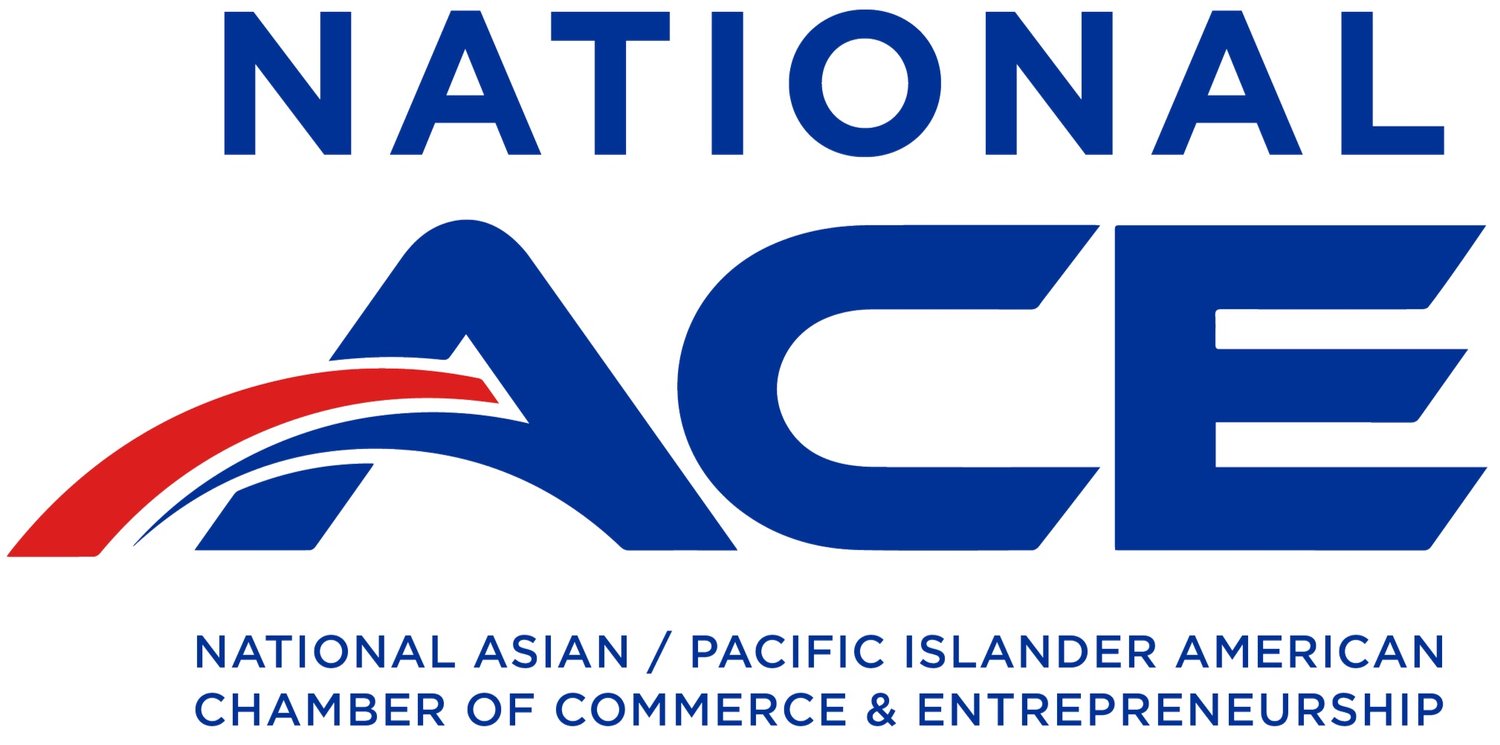Regional and National Surveys Provide Pulse on the State of AAPI Business in 2022
FOR IMMEDIATE RELEASE
July 29, 2022
CONTACT:
Daniel Oliver
202-774-8740
Regional and National Surveys Provide Pulse on the State of AAPI Business in 2022
AAPI small business owners report overall economic optimism and high trust in government while still facing lack of access to sufficient capital and race-fueled violence
WASHINGTON, D.C. – The National Asian/Pacific Islander American Chamber of Commerce and Entrepreneurship (National ACE) released new survey data on the current state of Asian American and Pacific Islander (AAPI) small businesses. From March to April 2022, National ACE fielded one national survey and three regional surveys in northern California, southern California, and Texas. In conjunction, the surveys capture a holistic picture of the experiences, challenges, and goals of AAPI small business owners two years after the pandemic first began.
The key takeaways across all regional and national surveys showed:
Majority of respondents across both surveys reported negative effects of COVID-19, ranging from catastrophic to moderately negative.
About 12 to 13 percent reported little to no effect of COVID-19 across both surveys.
More than 1 in 6 reported positive effects of COVID-19 in the national survey, whereas less than 1 in 4 reported positive effects of COVID-19 in the regional surveys.
Majority of respondents were overall optimistic that ‘business is back’ or that ‘business will survive till end of year’.
About 2 in 3 needed additional credit or financing in the last year to keep their businesses afloat.
Though trust in the government is high (>70 percent) and around 40 percent were able to fulfill their funding needs, many respondents still lack access to sufficient capital to maintain or grow their business.
The national survey, conducted in partnership with Reimagine Main Street (RMS), an initiative of Public Private Strategies (PPS), also showed that 44 percent of AAPI respondents lack confidence to fund an unplanned $5K business expense. Anti-AAPI discrimination is also prevalent, as indicated in the regional surveys, which showed that half of respondents reported at least one experience of racism, including disrespect, blame for the COVID-19 pandemic, and verbal harassment, highlighting the ongoing and pressing need to address these challenges in our communities.
“The surveys we are releasing today were an attempt to capture how AAPI communities and businesses are doing right now, in 2022, two years after so many of them were forced to shut down their businesses or reduce their operations.” said Chiling Tong, President and CEO of National ACE. “With a new set of challenges, we are eager to present the latest data on AAPIs related to trust in institutions, access to capital and credit, racial discrimination, and economic barriers and successes.”
The surveys, conducted online from March to April 2022, collected data on over 700 AAPI business owners in total (201 in national survey; 516 in regional surveys). The national survey focused on trust and access to capital, whereas the regional surveys focused on trust and access to credit, pandemic recovery, and anti-AAPI discrimination.
“I am particularly proud of National ACE’s survey work. The surveys are the primary tools we have when we are advocating for AAPI small business owners to Congress, the White House, and the private sector,” said Jimmy Ferguson, Chair of the Asian McDonald's Operators Association (AMOA), National ACE Board Member, and Chairman of National ACE’s Policy Committee. “The data acquired from our survey work helps us emphasize the needs of our AAPI communities, and that is why we are so committed to making regular surveys part of our mission.”
National ACE hosted a survey briefing on July 27, 2022, to share their findings with small business owners, representatives, and corporate partners. Congresswoman Judy Chu (CA-27) and Congressman Andy Kim (NJ-03) joined the briefing to provide comments on the importance of conducting surveys to gauge how AAPI business owners are faring in today’s economy.
“These surveys show that the investments we made did exactly what we intended them to do: keep AAPI businesses afloat.” said Congresswoman Judy Chu (CA-27), Chair of the Congressional Asian Pacific American Caucus (CAPAC). “While an overwhelming number of survey respondents reported negative impacts from the pandemic, which was expected, I am so encouraged to see and hear that these same individuals are now experiencing growth, revenue, hiring, and overall business confidence. National ACE has been instrumental in ensuring that the work we are doing to provide relief in Congress is reaching AAPI businesses and communities across the nation.”
“I sit on the Small Business Committee with Congresswoman Chu to support New Jersey small businesses and AAPI-owned businesses and ensure they have what they need to survive and thrive,” said Congressman Andy Kim (NJ-03). “As we continue to recover from the pandemic, it’s important to learn from our successes and failures during that time. Many AAPI businesses were affected by the pandemic, and using this data, I look forward to continuing working with small business owners and entrepreneurs to make sure they have the capital and support they need to continue powering our local economies.”
# # #
About National ACE
National ACE’s mission is to serve as a strong advocate of AAPI business interests and positive change on all issues that enhance and advance the goals and aspirations of AAPI business owners, entrepreneurs, and corporate leaders. National ACE strives to do this through supporting and promoting issues that impact the AAPI business community, improving the economic development and economic impact of the AAPI community, advancing coalitions and enhancing community building, and fostering the next generation of AAPI entrepreneurs and executives. National ACE provides a unified voice for the business interests of AAPIs nationally. Learn more at www.nationalace.org or www.aapistrong.com.
See the full press release here.
